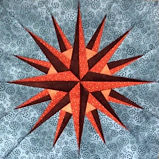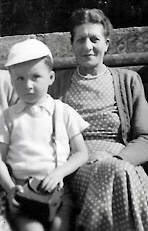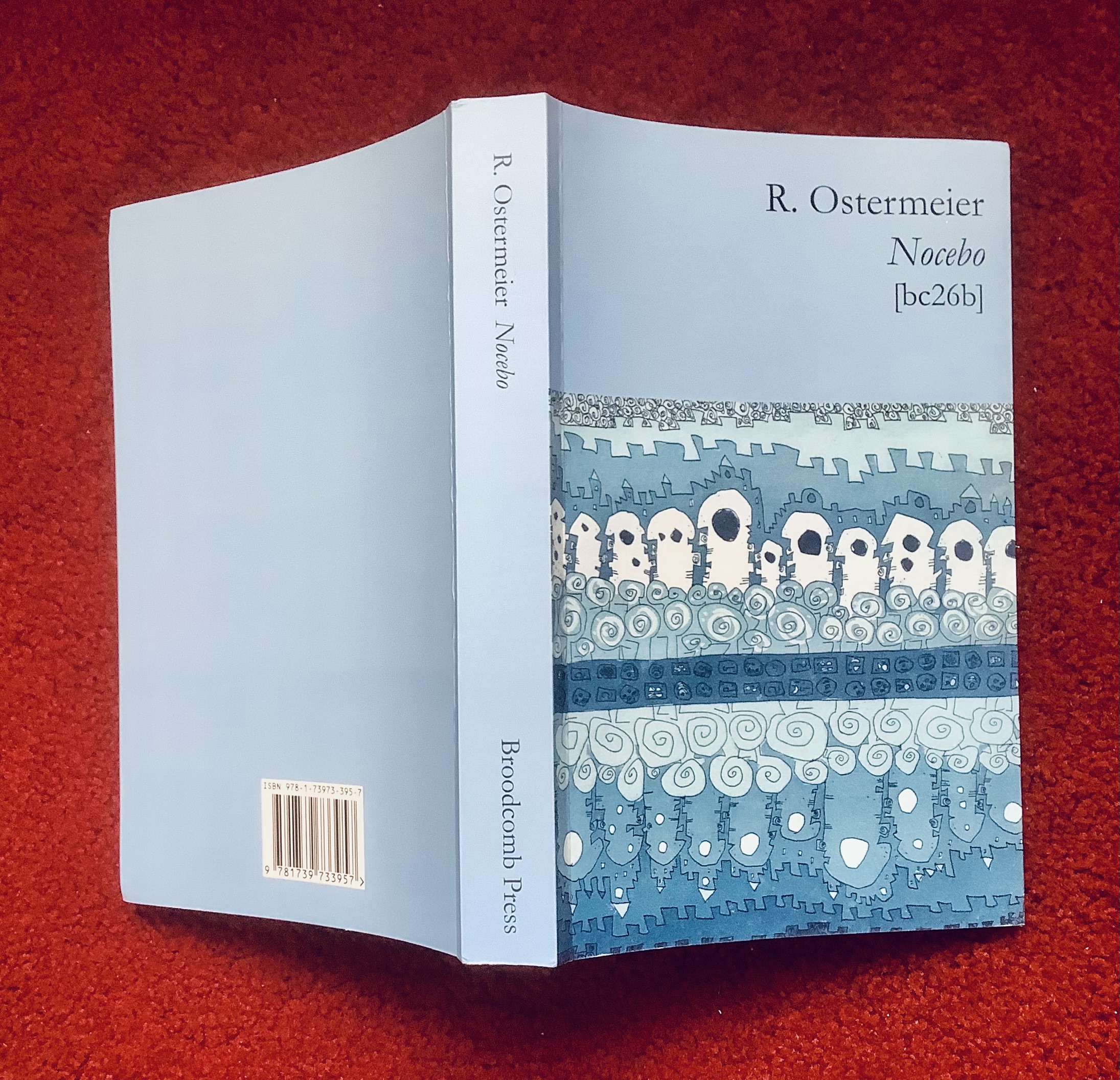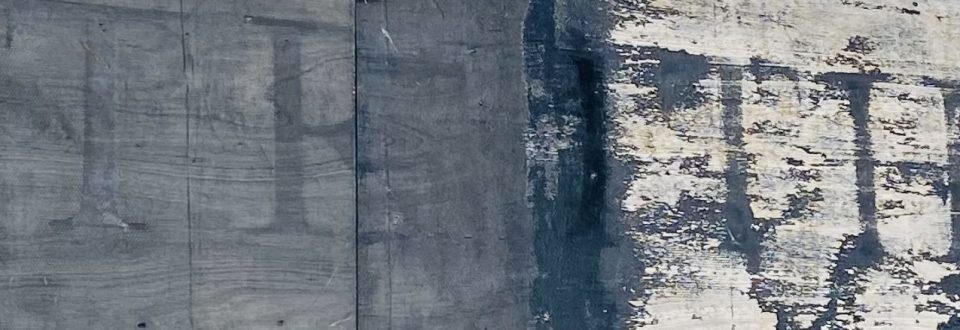Des Lewis will be 77 years old on 18 January 2025
Those who have read these episodic brainstorming reviews of mine must know they are very personal — rough-shod and spontaneous. Synchronicity and anagram mixed. I know they are not professional, never potentially publishable other than in the madness of my head, but I do hope they show grains of dark truth and cosmic panache.

These Des Lewis Gestalt Real-Time Reviews were founded in 2008.

‘What’s the loveliest word in the English language, officer? In the sound it makes in your mouth, in the shape it makes on the page? What do you think? Well now, I’ll tell you: E-L-B-O-W. Elbow.’ — THE SINGING DETECTIVE

“How shall a man find his way unless he lose it?” — Walter de la Mare

To any current genre author I have reviewed before — if you have a new story recently published or soon to be published in a collection or anthology, you may have a review by me of the story that also showcases where it is published. See HERE. (This is because I am no longer well enough to review as many books as I once did.)
Fresh Fictions, free to read HERE.
No AI input in preparation of my texts whatsoever.
THE NEW NONSCENIC
Photos here: https://conezero.wordpress.com/2024/02/24/d-f-lewis-recent-photos-1/


WINN’S CLOCK
“If someone did do things by halves, it stood to (my) reason that nothing would get done. We’d live in a world of things only half done.”
A folk story from the PENInSula with a woman’s black triangle, a story that mixes ‘wealths’ from, say, boxing prizes to, ironically, a woman ‘pissing wealthily’, and an alder tree that goes bodily mad from a grandfather’s ungrandfather clock stuck in it, amidst a life journey by a boy till he becomes well beyond centenarian age, even at some stage working in car insurance on said peninsula, and with two elbows and a shoulder affected by a cruel flensing. I find this story tuck like a Zeno’s Paradox cLock stuck within me and it has sent me quite mad. Even madder than I was once was. Beautifully written and it is crammed by inimical figures couched as Aickmanisms, which is honestly not a bad thing.
Moving The Yew
ARRIVAL
“‘No you get to live in a tent.’
De Frees was a member of the Yew Society…”
I was wondering whether the italics were misplaced there? Otherwise, this is immaculately stylish prose, if mis-accented with folk horror innuendo in places. An atmospheric arrival amidst a mixed-gender group of believable characters who, while billeted at a purpose-built encampment, need to move a giant yew tree via a vast created trench in the ground for reasons of irrigable redirection and a housing project on the Peninsula, also involving, in this chapter, a conflict of methods, modern and traditional, and a ghost story told before they go to bed upon the male narrator’s first night there.
THE FIRST DAY
“…began to enclose the rootball…[…] On being called from the trench, I lay on the grass…”
Some fascinating and tactile knowledge given us – through the believable interaction of characters – of the preparation of the Yew for moving, remarkably bolstered by my reviewing, this very morning, a story called ‘The Fifth Horizon’ here. Followed by another potentially memorable inner ghost story told in the evening by one of the sort of commune’s characters, a story about a mother’s son, a giant fish and a coffin…
“…the small green fuss created by their gowns on grass.”
THE SECOND DAY
I can’t tell you what is found in this story let alone — by ‘staring the Yew in the eye’ — to divulge, for fear of spoilers, what was discovered within the Yew’s rootball itself, yet I should try to convey to you the suspense of logistics in a giant ancient Yew’s removal and transit — and of implications of each separate inner story told so far within each chapter… Here, also, today, this Yew as a ‘rocket to its launch pad’ to match the explicit rocket science in the story reviewed in Interzone concurrently today and “As Above, So Below’, said Murray” to match the previous story linked as above, so below in the same Interzone yesterday! Or, more arguably, this chapter’s “Isle of Lewis” snatching a peninsula from its body with irrigable isthmus attenuated to nothing between?
THE THIRD DAY
“It seemed a pitifully small distance for a day.”
Yew progression as a Zeno’s Paradox? And a mysterious shape at night that makes loo visits more of a regression!
THE FOURTH DAY
It is as if I, too, am rolling the Yew forward a little each day, and learning more and more about it, and about yews in general, each us named after a yew as ‘you’, I wonder? Learning more of the satisfyingly complex characters and their place in the myths of their own ‘me’. Thinking of wooden loos, of dark presences, and of a tiny, literally toy-like chess set when compared to the quietus of quoits and their codes as found within you.
THE FIFTH DAY
“I’ve been noticing coincidences that I don’t think are coincidences.”
As well as the flow of plot, with talk of ominous presences and departures that will lead to absences, I am fascinated by the aspect of the time lapse camera showing a moving Yew with ‘fizzing’ people around it, and also the image of miniature people in another photo.
THE SIXTH DAY (part one)
“I kept quiet. I was alive to narrative and concerned the group was slowly working its unconscious way toward the neat story.”
A shock turning-point in the plot, with human cutting down and food smell and fear. Yet, I am suffering greater shock at the cutting down, in the incredibly simultaneous news today, of the Sycamore Gap Tree at Hadrian’s Wall, and whether I am to blame by stirring up colluding presences and by inadvertently reading this story out of order today, and moving it closer to YOU. I need at least a curative placebo, I think. Back to the fifth day tomorrow?
It has made me fearful for my own Yieldingtree. Here, some of the many photos of it I have taken since discovering it over ten years ago: https://dflewisreviews.wordpress.com/2022/09/15/todays-visit-to-the-yieldingtrees-2/
The fifth day now done, see above, correctly timed on the same day.
THE SIXTH DAY (part two)
“I felt an obligation to the yew.”
I feel an obligation to this work, as we suffer along with their self-guilt, recriminations, and the subsuming by presences beyond our capacity to see, as the group depletes and the Yew gap tree reaches the end of the trench, the psychotherapeutic theories of the narrator alongside, peninsularities if not aislewise ones.
As a cohort within this story, as well as one of its reviewers, I have triggered today new visions of my own Yieldingtree: https://etepsed.wordpress.com/2023/09/30/yieldingtree-aislewise/
THE NIGHT OF THE YEW
“| Silence |”
A vision or masochistic dream or ritual or simply a poetic enjambment mended?
Both pretentious and heartfelt, I become you. And, cruelly, more.
THE SEVENTH DAY
“Are we going to let this happen?”
The narrator’s self-debrief from the previous night, the Yew now rolled so far along the trench as to be beyond certain eye-lines – or I-lines?
THE EIGHTH DAY
“I could see no apparent pattern, yet still the feeling remained that there was an order hidden to me.”
…as if the felling of the Sycamore Gap Tree in the real-time while reading and reviewing ‘Moving The Yew’ has been part of that very pattern. I almost feel guilty I chose to read it when I did, because literature and life are inextricably entwined. I hope what happens, by magic or dream or a character’s bodily shriving, in this penultimate chapter, is a healing process or, at worst, a placebo for its nocebo, that retrospectively justifies the pattern I feel I must have triggered.
“If this tree is gone, then we will no longer exist.”
THREE MEETINGS
“….and Inappropriate words.”
A debriefing and possible healing after intensity, with described photographs, connections, and a trepanning, names, a pattern of quoits, and a resolution of sorts, and possible spoilers galore that I shall leave well alone, leaving only me bemused but hopeful, and also noting the fact that the narrator as psychotherapist is explicitly shown here as bearing the author’s surname, the letters of the full by-line containing ‘terrorism’ as well as ‘roisterer’. Indeed, not everything means something.
Mommick
I
“Footnote fame, however, can lead to fervid support; the idea an artist might be considered overlooked is catnip to some.”
If this work continues in the same vein as its first chapter, then we have a dark masterpiece on our hands. Broadly about a Hungarian family of artist, such as parents as sculptor and life drawer respectively and grandfather as photographer, seen through the eyes of the more digital son \ grandson, particularly the grandfather’s photos, and also the differing nature of nudity in men and women, and a most haunting vision of a certain missing book listed in the grandfather’s bibliography of photo collections. The bits hanging out of the words of this chapter are challenging to tackle but immensely fruitful. Not smooth or comprehensibly triangulate. And that takes no account of the bits in it I haven’t told you about!
II
I am awed, while impelled onward by this work, at the certainty that we do indeed have a dark fiction masterpiece on our hands here. I can’t help empathising my own current body as self with the grandfather in the photos of the book entitled 6.20, and my earlier younger self with the grandson, and especially with the ‘airbag’ metaphor. And the nature of the photographs, too. And much else with my own hanging peninsula, pulled pillar to post in the name of art or healing in a miniaturised mansion amidst woods where scarecrows would not be expected to crowd round. And I could not help further investigating into the word ‘mommick’: http://www.word-detective.com/2011/12/mommick-mammock/
And I feel, in hindsight, that it has always been inevitable that I would read this work before I died, and has such certainty thus kept me alive? So, do I dare finish it? Do I dare not? Am I pretentious enough to even ask such questions?
III
“…the elbow-joints made of gnarled wood.”
It’ll be hard to forget the visit to the scene of 6.20 and the almost conjoined scarecrows there. Anything else I say here will spoil it even more.
…
Meanwhile I am wondering about…
GENESIS 6.20: “Of the birds according to their kinds, and of the animals according to their kinds, of every creeping thing of the ground, according to its kind, two of every sort shall come in to you to keep them alive.”
IV, V & VI
“Maybe none of this means anything.”
And from that Black Maybe, the Noah’s ark of scarecrows, as unpaired by a later bloody pig-sticking, I can’t help thinking that Ostermeier’s Bartoš is Attila Veres’ version of Bartók HERE (and a timely Bartók concert attended live in last few days HERE), as earlier preparations for Mommick as Boy born from the ultimate parthenogenetic pairing within a giant scarecrow. And an old soldier’s testicles that hung lower than a towel’s privacy. The narrator’s guilt, shame and paranoia accompanying a suspicion of human body-parts having been smuggled into the scarecrows as catalyst of each pairing in the ‘6.20’ photos, factors hung out to dry, too?
“It’s the opposite of the placebo effect.”
Upmorchard
I & II
“The train did not stop at any of the coastal stations. They passed Careton, Fines, Shuck, Padgett-on-Sea.”
From Bartók to an at least slightly academic man called Barlick, and I follow him on a somewhat random tour of the Peninsula by train and on foot and I realise that I am in my own world as mutated by another’s greater skills, or vice versa, with big-headed people between various strange trains some being ‘dig trains’, pubs with odd locals, stones and bones and a b & b; I just re-read my own old miniature ‘Skinning the Yolks’ recently rewritten HERE, by chance, re-read it before starting this work, a work that has already, after just two chapters, has swept me off my feet with its prose charms and its sinister doppelgänger stalking. I did not know of this whole world’s existence, or vice versa. Not implying anything but utter admiration, as this work feels as if it’s much more previous than I am, and far better written, to boot.
III & IV
“The stairs were bare wood, and exposing the fact of their structure bled backwards in time to taint his every memory of stairs.”
Exposing other facts in this fiction, I feel I would be breaking some rule of this work’s “writy hiding” to take you beyond its own yellow light to reveal more of the characters he meets in the hangar environs of an abandoned fishing village, their stones and statues, and the fact that my own novella The Apocryphan ends with a foot with four toes. Needless to say, I am utterly beguiled. And the lesson taught me by this book ….
“Not. Everything. Has. Meaning.”
Not even the prime number: 90,127.
V & VI
“Maybe later, he said. / The truth. After clean up. A fragment. The meaning.”
Whatever the “vertical permutations” and some empty white spaces in this text, reading it is like his scrying the told-of text here associated with the stones, even inserting oneself into an eyehole, giving a sense of the scale of things here. Some music is tried by one of the characters as backdrop and I screamed out ‘Bartók!’— who gave such major influence upon contemporary jazz! But nobody listened. (I studied ‘The History of Language’ with Anne Cluysenaar in 1967, by the way.)
VII – XI
“…toe found a hole in the stone.”
Whether genuine vision, dream or madness, the “one block of text” taken as a body of Gloy stones for translation into such numinous realms will be something you will never forget, including its poignant and bloody, flower-tagged finale, and the subsequent musical ‘dying fall’ of a coda. I could not help myself finishing it today. Today somehow seems significant.
Taken to “the Padgett-on-Sea lighthouse then in a wide circle”, I, it’s ‘Great Stranger’, or not. Well, I saw meaning in the stones, even if there were none! And in this book, too, deservedly chosen as one of my rare reviews in the twilight of my reviewing career. Sorry to make it about me, but isn’t that what reading good books is all about? Hope you also find a satisfying ‘me’ in it, should you read it.
“…the cataclysmic leap from academic to nutter trapped under the several weights of disdain, mockery, pity, shame.”
END
The ‘R. Ostermeier’ shifting collage: https://nemonymousnight.wordpress.com/4320-2/